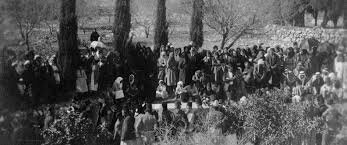ASTANA, Kazakhstan, 25 October 2022,— Religious leaders from around the world, including Pope Francis and the Grand Imam of Al-Azhar, gathered recently at the 7th Congress of Leaders of World and Traditional Religions in Astana, Kazakhstan, to examine the role of religion in contributing to social progress in a post-pandemic world. The forum provides an important opportunity for religious communities to foster greater understanding and cooperation.
Dr. Rutstein, Bahá’í International Community Secretary-General observed: “The role of religion is to establish peace, yet, long-standing prejudices, stereotypes that excuse violence against segments of society, and harmful traditions that have been handed down from one generation to another continue to divide people throughout the world.” Despite these challenges there are also clear signs that religion can play a constructive role in creating bonds of trust and cooperation, pointing to the pandemic and recent environmental crises where faith communities have overcome their differences in responding to disasters. Trustworthiness finds its “highest expression in service to others and to the community as a whole.” In describing trustworthy leaders-they welcome collective decision making and collective action and are motivated by a commitment to justice and the well-being of all of humanity.”
Dr. Rutstein added that social progress depends on a shared vision of the future founded on spiritual principles. “We must champion the abolition of all forms of prejudice and exclusivity while celebrating the diversity of the human race. We must passionately uphold in our words and our actions the equality of men and women. We must unequivocally advocate for the harmony of science and religion.”
Quoting from Bahá’u’lláh’s writings, Dr. Rutstein continued: “The statement that ‘all people are created to carry forward an ever-advancing civilization’ implies that everyone has the responsibility to contribute to the peace, prosperity, and unity of the entire human family.” (Bahá’í World News Service)
Archbishop Desmond Tutu has said: “One of the sayings in our country is Ubuntu - the essence of being human. Ubuntu speaks particularly about the fact that you can’t exist as a human being in isolation. It speaks about our interconnectedness. You can’t be human all by yourself, and when you have this quality - Ubuntu - you are known for your generosity. We think of ourselves far too frequently as just individuals, separated from one another, whereas you are connected and what you do affects the whole world. When you do well, it spreads out; it is for the whole of humanity.”
” It means to consider the welfare of the community as one’s own. It means, in brief, to regard humanity as a single individual, and one’s own self as a member of that corporeal form, and to know of a certainty that if pain or injury afflicts any member of that body, it must inevitably result in suffering for all the rest. (Abdul’-Bahá)








